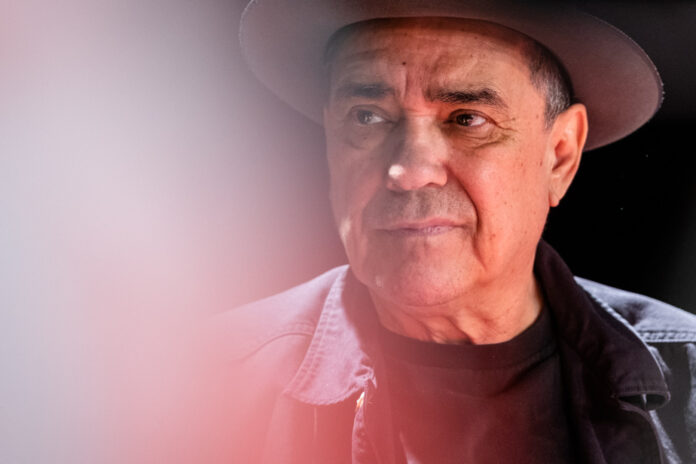Referring to a new “cultural cohabitation” and another form of reconciliation, musicians Florent Vollant and Mathieu Mckenzie (Maten) unveiled a brief on Tuesday asking the CRTC to impose a 5% quota of Indigenous music on Canadian commercial radio stations. Chiefs Ghislain Picard, of the Assembly of First Nations Quebec-Labrador, and Mike Mckenzie, of Innu Takuaikan Uashat mak Mani-utenam, were at their side to support this request.
“We are not heard enough. Currently, broadcasters have no obligation to make us play, recalled Mathieu Mckenzie, specifying that only channels linked to Radio-Canada were running Indigenous music in Quebec. The imposition of a quota is the only way to ensure a minimum presence of Aboriginal music on the airwaves of commercial radio stations. »
The request described as “legitimate” by Florent Vollant aims to break a silence that has lasted for more than 30 years. In 1989, he and Claude Mckenzie enjoyed phenomenal success with Kasthin’s debut album and their song E Uassiuian, which toured across Quebec. This momentum was broken dead at the time of the Oka crisis, in 1990, recalled Mathieu Mckenzie, who is the son of Florent Vollant. No other Aboriginal artist has known such an impact since.
Rapper Samian finds it “ironic” to say the least that Florent Vollant still has to fight this fight, 30 years after the success of Kasthin, but also says he finds this commitment very beautiful. He also considers it legitimate to ask for a quota from the CRTC, because he himself has noticed that if the radios played a piece where he sang in French with Loco Locass 15 years ago, the door had closed when he presented Les nomades, a duet with Shauit, because of the passages in Innu and Anishinaabemowin.
However, the curiosity is there, according to the group that prepared the brief. A consultation conducted in September 2022 with Aboriginal and non-Aboriginal respondents indicates that 95% of them felt that Aboriginal music did not occupy enough space on the commercial airwaves and that a quota was necessary. Nearly 82% also said they agreed with the 5% airtime requested by Indigenous representatives.
These figures demonstrate the “unequivocal” support of the population, according to chef Ghislain Picard, who believes that music is an important tool of rapprochement. “We talk a lot about reconciliation and we should also talk about musical reconciliation, also agreed Chief Mike Mckenzie, of the Innu community of Uashat Mani-utenam. Words, as beautiful and sincere as they are, can never replace concrete actions. »
Mathieu Mckenzie, of the Makushan Musique label, dedicated to Indigenous artists, specifies that the 5% quota of Indigenous music requested must be interpreted with an open mind. “We don’t just defend those who sing in Indigenous languages. We must not forget that, in Western Canada, there are communities that have lost their language. What they have left is to sing in English,” he says.
“We don’t divide, we’re divided enough as it is. Indigenous artists who sing in English, French or their language, we defend them, insists the musician and record producer, because we have come a long way. »
Émile Bilodeau, artist friend and ally of the Aboriginal cause, gave a brief and emotional speech at the unveiling of the memoir. “In Quebec, we are told that we have been colonized and that we must defend our language,” he said. There are 11 indigenous languages on the territory of Quebec that are on artificial respirators and there are still people who think that by giving a little space to our indigenous brothers, we will not be able to save French! »
The issue of the quota of indigenous music on the radio waves goes far beyond the positive effect it could have on artists and their careers, underlines Mathieu Mckenzie. “The impact wouldn’t just be on the music, it would be on Indigenous pride. When the natives hear a Scott-Pien Picard on the radio in Quebec, they are proud. We have wanted so much to be extinguished throughout history that we need to be recognized. We’ve come a long way,” he recalls.
The CRTC has confirmed to La Presse receipt of the brief. “We have advised the drafters and representatives that in order to be considered by the CRTC, this submission must be submitted to us through a consultation process. We will be addressing these issues in particular in upcoming consultations related to Bill C-11 (if the bill receives Royal Assent) and the co-development of the Indigenous Broadcasting Policy,” added the communications department of the organism.















